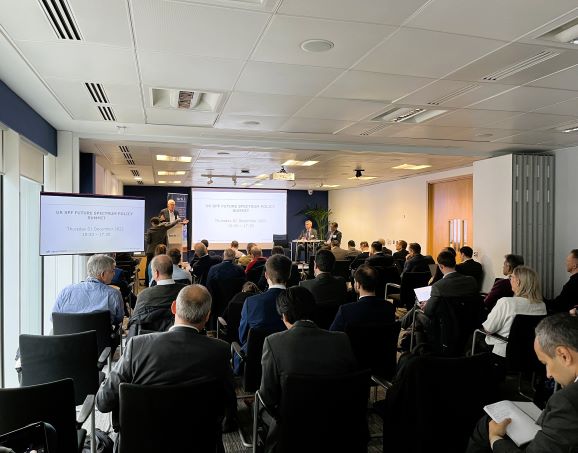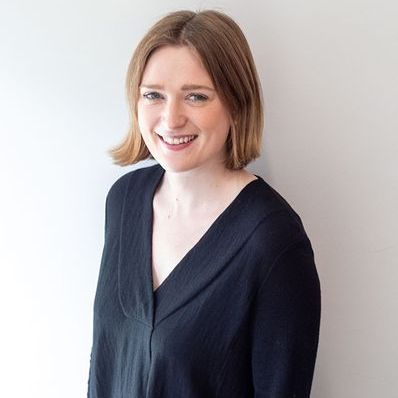UK SPF: Future Spectrum Policy Summit roundup
The 01 December 2022 saw the UK Future Spectrum Policy Forum host its first annual summit on future spectrum policy.
The summit combined the final plenary meeting of 2022 with the launch of three SPF-commissioned reports on market mechanisms, the future of the UHF band and current uses for the 7-24 GHz band and potential opportunities for 6G.
We also said goodbye to our long-serving UK SPF chair David Meyer, with techUK CEO Julian David giving the UK SPF’s thanks and congratulations.

The summit also brought together spectrum users from all parts of the spectrum-using ecosystem. It was great to see many viewpoints represented and want to continue this diversity of voice as much as possible, including through our steering board.
Speaking at UK SPF Future Spectrum Policy Summit, which over 120 industry leaders and policymakers, DCMS and Ofcom delivered the keynote address that served to recap on the role of spectrum in society and its economic and social value to the UK.
Market mechanisms report
In the morning session Analysys Mason took us through the conclusions of their review of spectrum market mechanisms.
These conclusions are the first wholesale analysis of spectrum market mechanisms since the original Cave Report twenty years ago.
Analysys Mason found out that while the market mechanism philosophy remains sound in most fields, current spectrum pricing through ALFs are an unnecessary application of the mechanism. These conclusions confirm there is a strong case to adapt and modernise all market mechanisms so that scarce mobile spectrum can drive wider economic growth across the UK.
Analysys Mason’s presentation was followed by the views of the peer-review team, who endorsed the report and offered suggestions for a more radical approach to spectrum mechanisms in the long run.
Future of the UHF Band
Coleago Consulting gave the findings of their commissioned report into the future of the UHF band. The report presented four scenarios (Status Quo; Flexible Use; IMT600 band plan; Transition to IPTV) and looked at potential regulatory within those scenarios.
The report was followed by presentations from Shure, Digital 3 and 4 and Nokia. We were glad to see the views of each of the major incumbents and potential future stakeholders, namely DTT, PMSE and mobile.
With this report, we aim to contribute to the overall discussion and preparations of the World Radiocommunication Conference next year (WRC-23), where the discussions on the future of the UHF band might lead to further policy actions in Europe, Africa and Middle East under Agenda Item 1.5.
Current Utilisation of the 7-24 GHz band
Cluster 3 chair Tony Lavender presented the findings of Plum Consulting’s report on the current utilisation of the 7-24 GHz band. The report was commissioned due to the spectrum’s potential for 6G allocation.
The report found no obvious areas where spectrum could be reallocated for 6G, and any future 6G utilisation of the band will require spectrum sharing.
As with the UHF band report, we were glad to have a very wide range of stakeholders using spectrum in this band speaking, including the MoD, the Met Office, Intelsat, the Joint Radio Company, Qualcomm and GSA.
By specifying the nature of each of their spectrum requirements, including where sharing may be both possible in future and impossible at any point, the panel gave an extremely detailed and well-balanced view of the band as a whole.
We are keen for this summit to become an annual event and to grow into a staple of the spectrum policy calendar.
If you would like to help guide the work of the UK SPF, including the shape of next year’s summit, we currently have a discount on the first year of membership for large members. Find out more from our information page.
All of these reports can be found at the techUK website.
Slides presented at the event can be found at the techUK website




